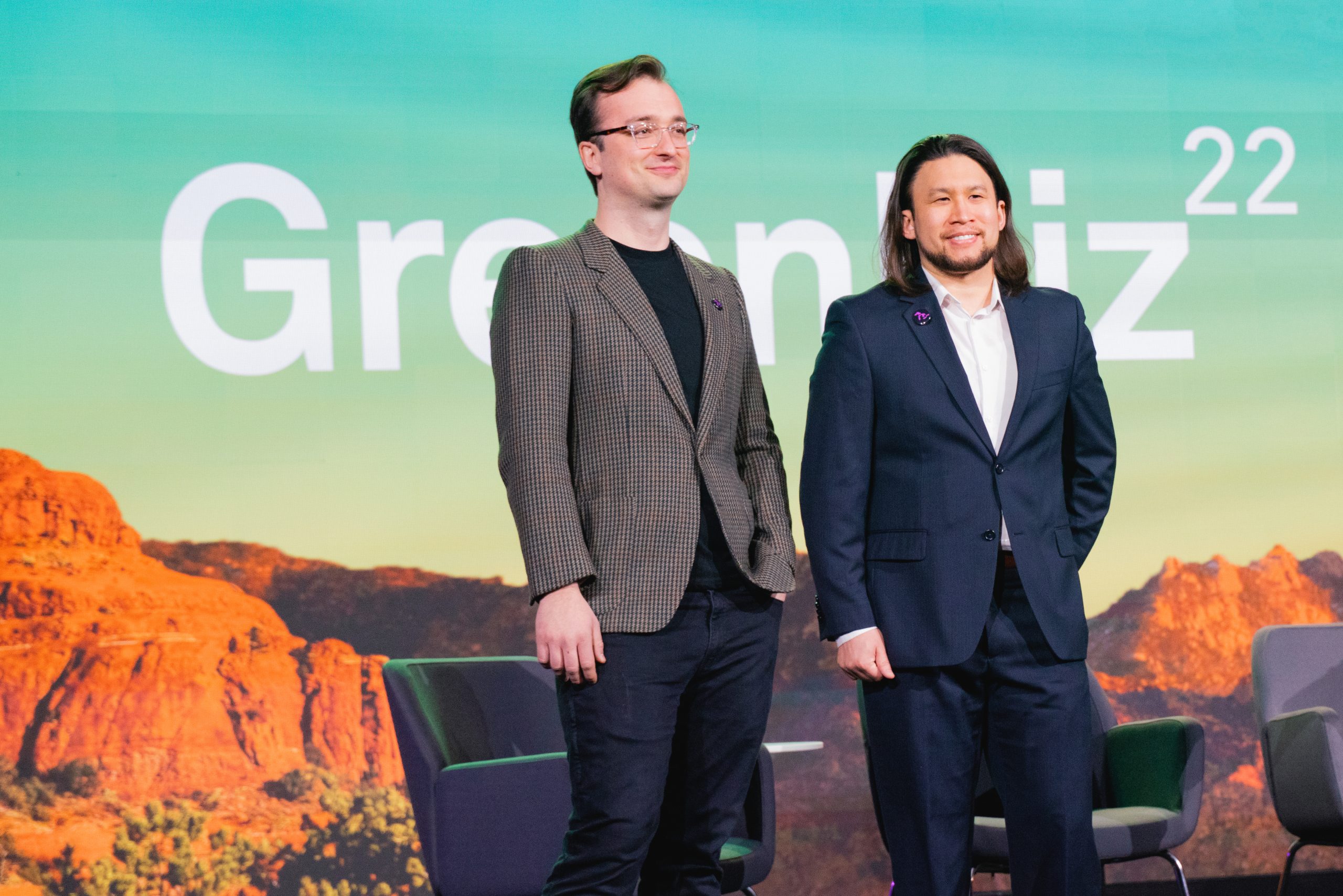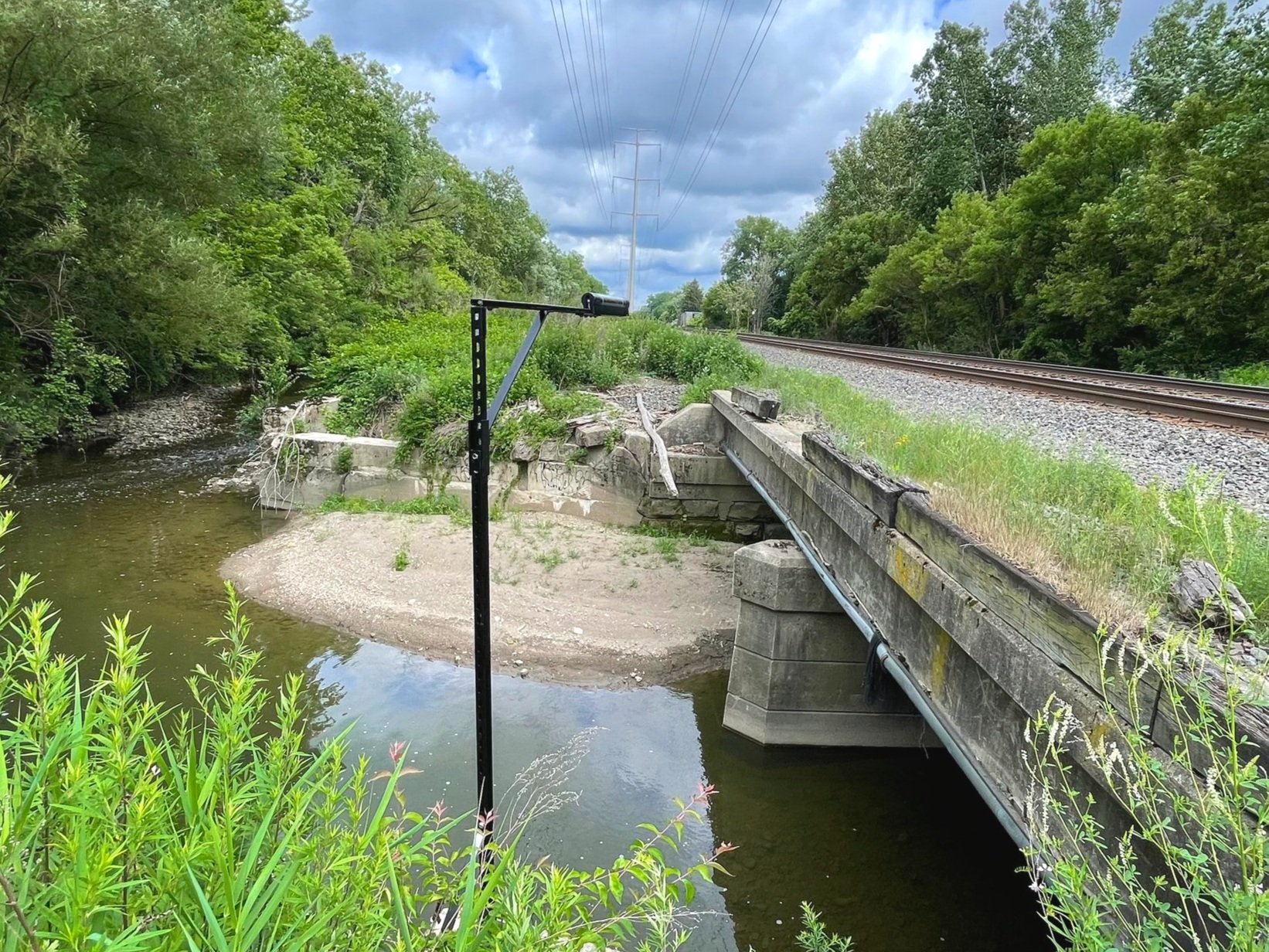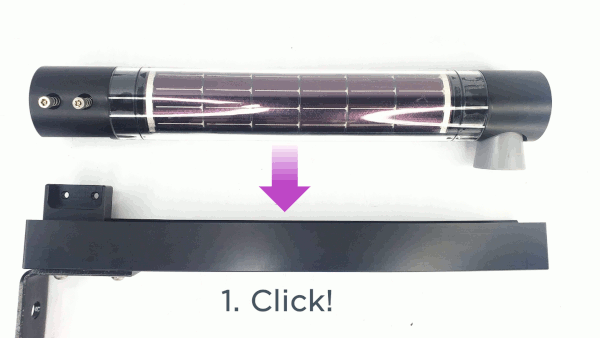Lab mates and former I-Corps participants, Dr. Brandon Wong and Dr. Branko Kerkez, are tackling the most common form of natural disaster, flooding, with their water level sensor company, Hyfi.
Drs. Wong and Kerkez met at the University of California, Berkeley as Wong pursued his MS in Civil Engineering and Kerkez pursued his PhD in Civil and Environmental Engineering. When Kerkez accepted an Associate Professor position at the University of Michigan, Wong followed, becoming the first PhD student to study in Kerkez’s Real Time Water Systems lab.
“The idea at the time was, ‘what if all of the stuff that is happening with self-driving cars could happen with water?’” Dr. Kerkez said. “The idea was to look at autonomous water systems.”
Though Wong was new to stormwater systems when he joined the lab, he quickly acclimated to the research. Both Kerkez and Wong felt that working with smart water satisfied their interest in technology while allowing them to make an impact.
“We both really liked working on the technology side of things, but having this broader impact was also something that motivated the both of us,” Dr. Wong, CEO of Hyfi, said.
That drive for impact ultimately led Wong and Kerkez to begin the journey of commercializing their research. After earning his PhD, Wong stayed at the lab as a postdoctoral researcher and passed up outside job offers to continue working on smart water. Kerkez and Wong ultimately decided to attend I-Corps to explore the possibility of forming a smart water company using their research and knowledge.

Founders of Hyfi, Dr. Branko Kerkez (left) and Dr. Brandon Wong (right), at the GreenBiz22 conference.
Wong was not entirely new to I-Corps – he had taken a class with Steve Blank, the founder of I-Corps’ Lean LaunchPad approach, at UC Berkeley. However, actually attending an I-Corps course was new territory for Wong and Kerkez.
“It was a lot of learning, questioning ourselves about what we were doing,” Dr. Wong said. “Also getting to explore what could be translated from all this work we had done in our lab. Is there a nugget of something that could be viable as a business outside of academia?”
After completing a Great Lakes I-Corps Hub workshop at the University of Michigan, Wong, joined by Kerkez, attended the NSF National I-Corps program. Entering the I-Corps program, Wong and Kerkez’ scope of research was huge. The duo used the I-Corps program to narrow their focus to a pursuable first target market.
“When we did our interviews with I-Corps, it became apparent that we can’t sell smart water,” Dr. Kerkez said. “After talking to hundreds of people, it opened our eyes up to the fact that we need to become focused and understand as engineers what it means for a market to exist. That is why Hyfi turned into this laser-focused effort – we went from everything we do to just doing water levels. We decided instead of doing everything, we would do one thing really well.”
After conducting hundreds of I-Corps interviews, the duo settled on sensor-based water level reporting for municipal stormwater managers. As flooding becomes more common and more intense in cities across the country and world, Hyfi’s technology would make it easier for stormwater managers to react to flooding situations with data-informed decisions.

Hyfi sensor in action measuring water levels.
The work Kerkez and Wong did in I-Corps led to the formation of their company, Hyfi. After finishing I-Corps, the duo used their I-Corps findings to apply for a Great Lakes Protection Fund grant to start the company.
“The Great Lakes Protection Fund grant was really informed by everything we had done in I-Corps up until that point,” Dr. Wong said. “Having this vision really came through those hundreds of I-Corps interviews.”
According to Kerkez, Hyfi was built around municipal stormwater managers’ biggest pain points – real-time response to rain and flooding and long-term infrastructure investment.
“When it rains, things flood,” Dr. Kerkez said. “Municipal stormwater managers are managing a huge swath of land using very small crews, or sometimes no crews at all. They have to be ahead of resident phone calls and know when to close off roads. We found out, through these interviews, that they are effectively operating in the dark.”
Hyfi’s easy-to-install water level sensors help stormwater managers see water levels in real-time, allowing them to make data-informed decisions.

Animation explaining how to install Hyfi’s smart sensors.
“Figuring out what is happening on the ground in the sense of where is the flooding occurring? How deep is the water? Is it going up quickly? Or, is it slowly going down? That affects how people on the ground, municipal managers, and first responders decide where they are going to drive to as soon as they get in the car,” Dr. Wong said. “Hyfi acts as those eyes on the ground, or a co-pilot, if you will. We are watching and checking surroundings so we can tell a city manager, flood manager, or first responder that this is the area you need to pay attention to.”
With real-time data and past data provided by Hyfi, municipal water managers can present data-informed proposals for infrastructure improvements to prevent flooding.
“We’ve found from working with municipalities that their ability to try out a new technology isn’t as easy as it may be for consumers,” Dr. Wong said. “When municipalities invest, it is community dollars and it better be something that they can show is valuable to the community and provides a positive impact to the people that are paying their taxes into this kind of thing.”
Though Wong and Kerkez were both adept at engineering capable water level sensors, they knew a capable sensor was equally as important as a user-friendly sensor.
“I’m pretty sure we have the easiest to use tool that we’ve ever seen for water level measurements,” Dr. Kerkez said. Once the sensor is installed, “Municipal stormwater managers receive the benefit of the technology, just like they do with a smart thermostat, without needing to worry about how it works or what it does.”

The data collected from Hyfi’s sensors appears in an app for users.
Hyfi was recognized for their technology’s ease of use and important flood response impact by Verizon with their 2022 Verizon Climate Resilience Prize.
“It was super rewarding and validating to see a group, like Verizon, that doesn’t work exclusively in water, or anything along those lines, take a look at Hyfi as a new company and see that there is something in the way that we approach things that was worthy of winning this prize,” Dr. Wong said. “The technology is important, but also how it applies to the folks who are going to use it and how it could empower them to make a difference.”
Since Hyfi was founded just two years ago, they have deployed sensor networks in Michigan, Ohio, New York, and Minnesota. Wong hopes to see Hyfi’s sensors deployed to the East and Gulf coasts, areas with major storms and flooding. Eventually, Hyfi would like to see their sensors deployed across the country and globally.
“We’ve had a lot of positive feedback from folks who say the data is very useful and they’ve been able to figure out where to send crews, and it is saving a lot of time logistically and field wise,” Dr. Wong said. “The vision is always that Hyfi is a company that is sustainable long-term and that we are helping local communities by providing something useful at the end of the day.”
